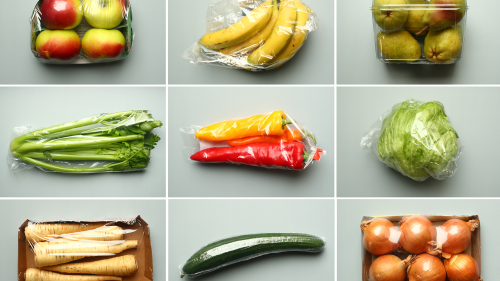Paper Wrappers, Cultivating Crickets, and Aid's Limits

Our weekly roundup of the top news in food, agriculture, and global development.
Top Story
Hunger Out of Aid's Reach
The UN humanitarian chief warned that hundreds of thousands of people in Tigray, Ethiopia are living in famine conditions, with five million more needing immediate food aid. Aid groups have not been able to reach these people in need, including farmers unable to access seeds and fertilizer. Thousands of miles away, millions of people out of aid’s reach are also facing food insecurity. In North Korea, 10 million people are considered food insecure. The nation will suffer a food gap of 780,000 tonnes this year, and Kim Jong Un admitted this week that the nation’s “food situation is now getting tense.” The last international aid workers, from UNICEF and the Red Cross, in the country left in December 2020.
Council Insights
Reinvest or Wither
A recent report found that over two thirds of the buildings at US colleges of agriculture are at the end of their useful years. This is just one indicator of the broader decline in US investment in agriculture R&D. To reverse this trend, Representative Stacey Plaskett calls for an investment of at least $40 billion in agriculture research and infrastructure in our latest collaboration with Agri-Pulse.
Food and Agriculture
Food Labels
This coming fall, the UK will have a pilot run of “eco-score” labels on their food products. The labels will allow customers to identify how eco-friendly the food they are buying is. The non-profit that created the system, Foundation Earth, hoped this will allow consumers to make more sustainable choices.
Plastic to Paper
An increasing number of food and beverage companies are switching from plastic to paper packaging, as awareness grows on the climate impacts of plastic made from fossil fuels as well as the ocean pollution caused by plastic waste.
Opinion- Systems Failure
Globally, many individuals living in rural areas face poverty and rely on farming as a source of income. When their farms fail, they are forced to immigrate to new areas. Food systems contribute to this problem by not only failing to feed the growing population nutritiously, but also contributing to climate change.
Deeper Dive
Wrappers are Forever?
A chip bag can break down in 10-20 years, but plastics don’t biodegrade. Instead of being converted into useful compounds by living organisms, plastics breakdown into smaller particles of plastic. Another common material for food packaging, Styrofoam, also does not biodegrade.
Data Crunch
Cleaning up Beef
A public digital platform called “Green Seal” aims to clean up beef trade in Pará, Brazil by reporting animals raised on illegally deforested land, on farms that have unpaid environmental fines, or on farms involved in crimes such as slave labor.
SEE ALSO: Can China End Brazil’s Deforestation?
Resilience
Indigenous Food Systems at Risk
A new study highlights insights from Indigenous People’s food systems and warns of threats from climate change and the expansion of various industrial and commercial activities.
Big Ideas
Foraged to Home Grown
Edible insects, often available only seasonally, have been eaten in Zimbabwe for generations. Esnath Divasoni, a farmer from rural Zimbabwe, has developed a method to grow crickets year-round. She is training other young women from rural backgrounds these methods to promote food and nutrition security.
DC Report
Over-Reliance Warning
Agriculture Secretary Tom Vilsack expressed concerns that American agriculture is too reliant on exports to China. This year, China is forecast to be the top buyer of American farm products.
Big Actors
Subsidy Deal
EU negotiators struck a deal on reforms to the bloc’s farm subsidy program, introducing new measures aimed at protecting small farms and encouraging the adoption of sustainable farm practices. Green activists argue that proposed reforms do not go far enough to reduce greenhouse gas emissions and protect biodiversity.
Trade & Commodities
Pricing Agreement Falls Short
Cocoa farmers only receive about six percent of the value of a chocolate bar. Ghana and Côte d’Ivoire, the world’s leading cocoa producers, began adding a premium to cocoa’s market price to support farmers last year. The effort has not translated to better livelihoods for farmers, in large part because multinational corporations sought out indirect purchasing methods to avoid the premium.

